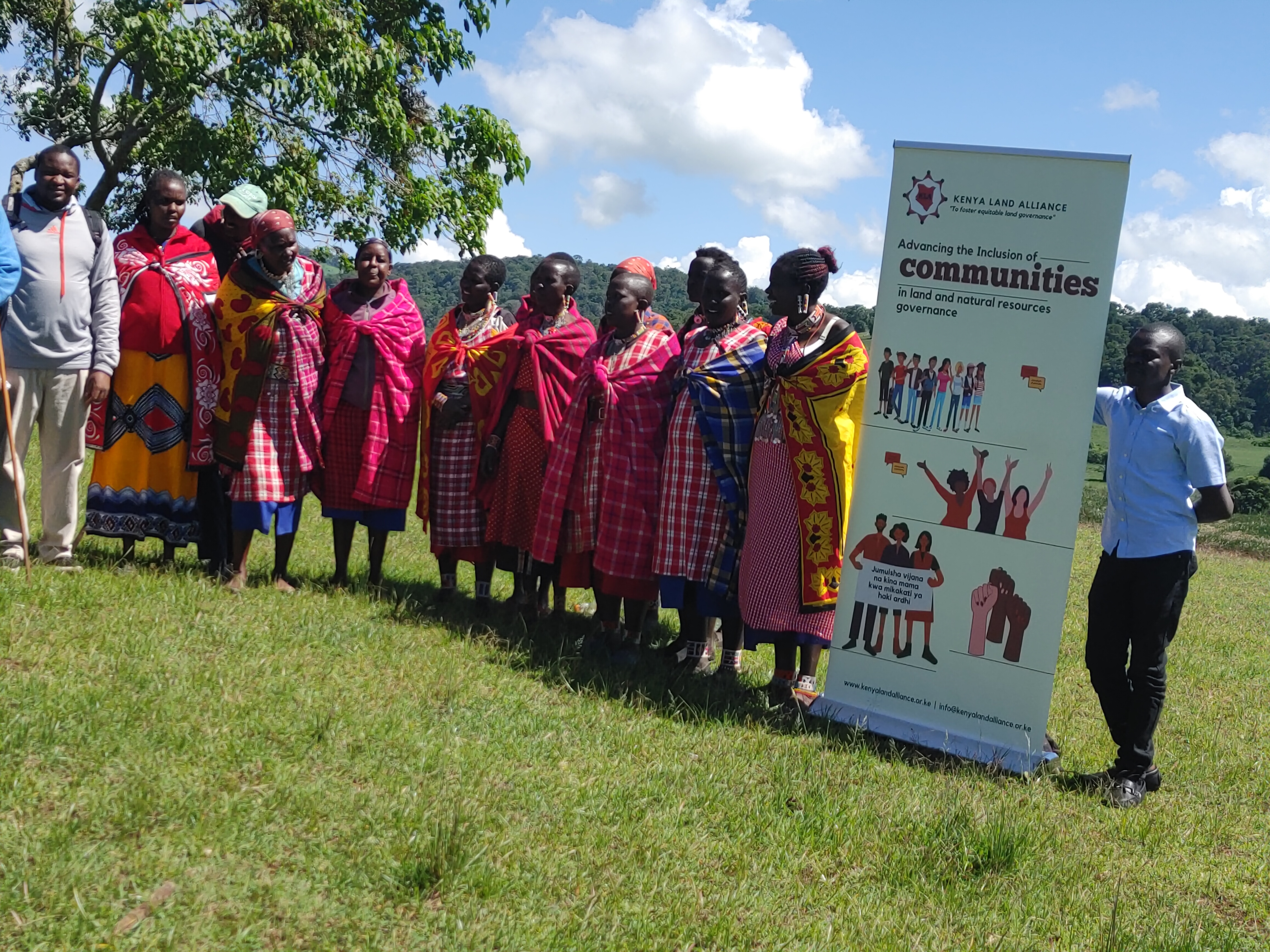Engaging traditional leaders to advance environmental protection
A visit to a revered Maasai traditional leader at the forefront of protecting the sacred Loita Forest in Kenya
by William Onura | 2023-05-22

Human-driven biodiversity loss has accelerated in all parts of the world. In December 2022, nearly 200 countries signed the Kunming-Montreal Global Biodiversity Framework (GBF) committing themselves to “take urgent action to halt and reverse biodiversity loss” and protect 30 percent of land and sea area by 2030. This year’s International Day for Biological Diversity, which takes place on 22 May, aims to accelerate momentum towards this global aspiration through the overall theme: From Agreement to Action: Build Back Biodiversity.
Through their traditional knowledge, and their cultural and spiritual values that foster sustainable land stewardship, indigenous communities play a critical role in protecting rangelands, forests, watersheds and other vulnerable ecosystems. The Maasai community living in the environs of the Loita Forest in Kenya have lived in harmony with nature for generations, sharing water resources and grazing fields with wild animals and other communities.
As part of our work to strengthen legitimate tenure rights in forest conservation programmes, TMG Research works closely with the Kenya Land Alliance, Entashata Community-based Organization, and Narok County Government to support responsible land governance of the forest region. The partners recently visited Maasai traditional leaders to gain insights into traditional governance structures that have enabled the community to manage the forest and explore appropriate strategies to mobilize surrounding communities and other actors to work collaboratively to biodiversity conservation.

The team from Entashata, Narok County Government, Kenya Land Alliance (KLA) and TMG Research with women's group members. Photo credit: Peter Oduor, KLA
Traditional leaders at the forefront of biodiversity conservation
Despite the systemic disempowerment of traditional governance structures during the colonial era, traditional Maasai leaders - Oloiboni - still wield strong moral and social authority. An Oloiboni is considered to be the chief healer, diviner, prophet, and hence plays an indispensable role in protecting sacred forest and other resources that hold the key to these traditional rituals and practices. As highlighted by Amos Simpano, a member of Entashata, the Oloiboni holds the Maasai community together. He is consulted on the most important cultural, religious, and social issues affecting the community, including forest conservation. “Any person or organization that is interested in research in Loita Forest must pass through the Oloiboni,” Simpano informed us.
In Narok County, the current Oloiboni Mokombo Senteu ole Simel is the third-generation leader of a branch of the Maasai that disagreed with the sale of Maasai territory to create the current capital, Nairobi and relocated to the Loita area. During the visit, Oloiboni Mokompo emphasized the capacity of his community to take care of its own natural resources. “I trust in the community’s ability to take care of and conserve the forest as they have done for years and as of now, elders including myself are already training younger men to take over the conservation initiatives,” he said.
Supported by the community and two lawyers, the revered Maasai traditional leader successfully petitioned the Kenyan government over plans to gazette the sacred Loita Forest. The local community was afraid that gazettement would create land conflicts, and further disconnect the Maasai from their ancestral land, and cultural practices that are integrally linked to the forest. By recognizing the spiritual, cultural, and economic values that have safeguarded forests and other natural resources for centuries, TMG and its partners aim to ensure that such local perspectives are systematically integrated in sub-national and national land governance planning processes.
The visit took place in the context of TMG’s Global Soil Week project, which works with civil society, government, research and other partners in four African countries to explore how to secure the legitimate rights of forest-adjacent communities in land restoration programmes.
Read more: Synthesis report on responsible land governance in Benin and Kenya
Edited by Wangu Mwangi
 Urban Food FuturesFeb 09, 2026
Urban Food FuturesFeb 09, 2026Pushing the horizon: Urban farming and community-led innovation in Mukuru informal settlement
A small community-run greenhouse in Mukuru is offering insights into how controlled-environment agriculture can strengthen food security in urban environments under increasing pressure—and a look into the future of food systems in informal settlements.
Christian Sonntag, Emmanuel Atamba, Lumi Youm
 Land GovernanceDec 18, 2025
Land GovernanceDec 18, 2025Land tenure, women’s land rights, and resilience: Reflections from CRIC23 toward UNCCD COP17
Our experts discuss what the exchanges at CRIC23 highlighted and revealed about the role of secure and gender-equitable land tenure in the UNCCD's work ahead of the 2026 triple COP year.
Frederike Klümper, Washe Kazungu
 Urban Food FuturesDec 09, 2025
Urban Food FuturesDec 09, 2025The story of Mukuru's Urban Nutrition Hub
In Mukuru informal settlement, a safe haven for women has grown into the Urban Nutrition Hub, a multi-purpose space for nutrition education, training, and community development, demonstrating the potential of grassroots community-owned innovation..
Serah Kiragu-Wissler


